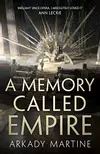
altlovesbooks
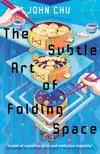
This is a messy book, so please know that before diving in sight unseen. My husband asked me what this book was about when we were standing in line for something, so I took a crack at summarizing it for him. Here's my best attempt:
So, there's an underlying system behind everything called the Skunkworks. And when I mean everything, I mean really everything, for this universe. It also connects with other universes, to further complicate things. Ellie is one of the people tasked with keeping the Skunkworks going, along with her cousin Daniel. Ellie's mother is dying though, and Daniel's keen sense of the Skunkworks obligates him to show Ellie that a strange setup was created to keep her mother alive (barely, in pain). This setup is also impacting the Skunkworks in other, less obvious ways, creating bugs and glitches in the system that manifest themselves as issues with universal physics. Ellie chooses to dismantle this system, alienating her from her sister Chris, her family, and other maintainers of the Skunkworks in the process. Ellie wants to make things right with Daniel's help, but it involves digging around to discover who set up the system in the first place and uncovering uncomfortable family truths in the process.
So, right off the bat, I want to say that I had a lot of fun with this book. Ellie and Daniel are great together (as cousins, weirdos), and their interplay made up most of my enjoyment of this book. Alongside their antics is the rest of the book though, and I had problems with it. I couldn't figure out if I'm too dumb for whatever science the author was presenting here, or if that's what the author was counting on so I wouldn't ask too many questions. Because there's a lot of at least science-adjacent terminology and situations here, and I came out the other side not entirely sure if I grasped what I had just read.
I also found Ellie and Chris's relationship problematic at best, but maybe that was the point. Ellie's blinders regarding Chris are astronomically large, and I was frustrated at several points of the book where Daniel and others would try and get her to confront the fact that Chris was not a good person, and Ellie would refuse. By the end of the book I think a resolution was supposed to happen, but even that felt unfinished, leaving me unsatisfied with things as they stood.
But in spite of the glaring flaws above, I really did enjoy reading this book. I'm not sure I can point to why, but I did. There's a lot of familial guilt to unpack here, and Daniel makes a good foil to Ellie, and I enjoyed them together.
Thanks to NetGalley and the publisher for providing me with a free eCopy in exchange for an honest review.
This is a messy book, so please know that before diving in sight unseen. My husband asked me what this book was about when we were standing in line for something, so I took a crack at summarizing it for him. Here's my best attempt:
So, there's an underlying system behind everything called the Skunkworks. And when I mean everything, I mean really everything, for this universe. It also connects with other universes, to further complicate things. Ellie is one of the people tasked with keeping the Skunkworks going, along with her cousin Daniel. Ellie's mother is dying though, and Daniel's keen sense of the Skunkworks obligates him to show Ellie that a strange setup was created to keep her mother alive (barely, in pain). This setup is also impacting the Skunkworks in other, less obvious ways, creating bugs and glitches in the system that manifest themselves as issues with universal physics. Ellie chooses to dismantle this system, alienating her from her sister Chris, her family, and other maintainers of the Skunkworks in the process. Ellie wants to make things right with Daniel's help, but it involves digging around to discover who set up the system in the first place and uncovering uncomfortable family truths in the process.
So, right off the bat, I want to say that I had a lot of fun with this book. Ellie and Daniel are great together (as cousins, weirdos), and their interplay made up most of my enjoyment of this book. Alongside their antics is the rest of the book though, and I had problems with it. I couldn't figure out if I'm too dumb for whatever science the author was presenting here, or if that's what the author was counting on so I wouldn't ask too many questions. Because there's a lot of at least science-adjacent terminology and situations here, and I came out the other side not entirely sure if I grasped what I had just read.
I also found Ellie and Chris's relationship problematic at best, but maybe that was the point. Ellie's blinders regarding Chris are astronomically large, and I was frustrated at several points of the book where Daniel and others would try and get her to confront the fact that Chris was not a good person, and Ellie would refuse. By the end of the book I think a resolution was supposed to happen, but even that felt unfinished, leaving me unsatisfied with things as they stood.
But in spite of the glaring flaws above, I really did enjoy reading this book. I'm not sure I can point to why, but I did. There's a lot of familial guilt to unpack here, and Daniel makes a good foil to Ellie, and I enjoyed them together.
Thanks to NetGalley and the publisher for providing me with a free eCopy in exchange for an honest review.

Added to listRomancewith 10 books.

Added to listHistorical Fictionwith 80 books.

Added to listAudiobooks Readwith 176 books.
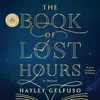
"Time is an intentional thing. You have to look after it, and it will look after you."
I feel like there's a good book in here, or the good idea of a book, but I wasn't sold on some of the decisions made by the main character for the sake of the plot, and the worldbuilding left a lot to be desired. I really loved the idea of this astral library outside of time housing people's memories, but it seemed under described, under utilized, and kind of a letdown.
Lisavet is a girl out of time. Her father, owner and creator of magical timepieces that allow the user to access a vast library of memories, deposits her there to keep her safe during Kristallnacht, swears he'll come back for her, and never does. She's trapped without a watch of her own to get back, and thus grows up in the stacks of this mysterious library. Other people have access to this library, timekeepers who enter the library to burn books of memories, but Lisavet soon makes it her mission to preserve these memories that others want destroyed. It's through this saving of burning books that she meets Ernest, a timekeeper for the Americans, working under Jack, head of the timekeeping organization. As is the way of these things, the two become lovers, until Lisavet learns some ugly truths about the American timekeepers organization and a miscommunication (ugh) drives the two apart.
So I loved Lisavet and her goals in the beginning of the book, even if the burning of the books of memories aren't well explained. Even Ernest, after Lisavet and him become an item, doesn't seem to be able to explain why the timekeepers do what they do, except some vague notion about nation sovereignty. Preserving memories/books/whatever just appeals to me. But Lisavet's character and motives entirely changes after (major plot spoilers here) she has Amelia. Suddenly she's this ruthless, heartless killer of memories, all in the name of keeping Amelia safe. It just rings hollow late in the book. I know it's supposed to show the lengths she's willing to go to for Amelia, but some of the things she does is downright horrible, and I'm not sold on the abrupt nature of her character shift. It's kind of telling when I was commenting early on in the book about how much I loved Lisavet as a character and how much I hated Moira.
I didn't think the library was all that well explained, and as I've mentioned here already, nothing seemed well explained. The magic/memory system seems handwavy with rules and limitations only when convenient and no real grasp of why the timekeepers were doing what they were doing. Jack as a villain was the most villainest of villains, very flat as a character, which is unusual when the author took such care with Lisavet, Ernest, and Amelia. I did love how the author did dialogue and internal thoughts, very descriptive and moving, but anything external, like a scene or descriptors or anything seemed lacking. The time jumps between characters was also jarring in places, particularly near the end when things started converging. I got really confused as to who/which character was the POV character and when sometimes when listening to the audiobook.
The love story between Ernest and Lisavet was sweet, however, and I did like how they always managed to find each other again. I just wish the rest of the book held up to keep me interested.
"Time is an intentional thing. You have to look after it, and it will look after you."
I feel like there's a good book in here, or the good idea of a book, but I wasn't sold on some of the decisions made by the main character for the sake of the plot, and the worldbuilding left a lot to be desired. I really loved the idea of this astral library outside of time housing people's memories, but it seemed under described, under utilized, and kind of a letdown.
Lisavet is a girl out of time. Her father, owner and creator of magical timepieces that allow the user to access a vast library of memories, deposits her there to keep her safe during Kristallnacht, swears he'll come back for her, and never does. She's trapped without a watch of her own to get back, and thus grows up in the stacks of this mysterious library. Other people have access to this library, timekeepers who enter the library to burn books of memories, but Lisavet soon makes it her mission to preserve these memories that others want destroyed. It's through this saving of burning books that she meets Ernest, a timekeeper for the Americans, working under Jack, head of the timekeeping organization. As is the way of these things, the two become lovers, until Lisavet learns some ugly truths about the American timekeepers organization and a miscommunication (ugh) drives the two apart.
So I loved Lisavet and her goals in the beginning of the book, even if the burning of the books of memories aren't well explained. Even Ernest, after Lisavet and him become an item, doesn't seem to be able to explain why the timekeepers do what they do, except some vague notion about nation sovereignty. Preserving memories/books/whatever just appeals to me. But Lisavet's character and motives entirely changes after (major plot spoilers here) she has Amelia. Suddenly she's this ruthless, heartless killer of memories, all in the name of keeping Amelia safe. It just rings hollow late in the book. I know it's supposed to show the lengths she's willing to go to for Amelia, but some of the things she does is downright horrible, and I'm not sold on the abrupt nature of her character shift. It's kind of telling when I was commenting early on in the book about how much I loved Lisavet as a character and how much I hated Moira.
I didn't think the library was all that well explained, and as I've mentioned here already, nothing seemed well explained. The magic/memory system seems handwavy with rules and limitations only when convenient and no real grasp of why the timekeepers were doing what they were doing. Jack as a villain was the most villainest of villains, very flat as a character, which is unusual when the author took such care with Lisavet, Ernest, and Amelia. I did love how the author did dialogue and internal thoughts, very descriptive and moving, but anything external, like a scene or descriptors or anything seemed lacking. The time jumps between characters was also jarring in places, particularly near the end when things started converging. I got really confused as to who/which character was the POV character and when sometimes when listening to the audiobook.
The love story between Ernest and Lisavet was sweet, however, and I did like how they always managed to find each other again. I just wish the rest of the book held up to keep me interested.
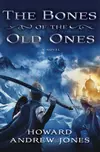
Added to listFantasywith 144 books.

"His risk is mine, and if we fall, I shall fall first."
Okay, so I finished the first book a bit ago and loved it. Wedged in the book of short stories set between these two books after that and liked it well enough. Now I've read the second book (and considering it came out in 2012 with nothing else forthcoming, I suspect the last), and I'm really glad to have fit this whole series in this year! Desert fantasy has become my jam.
Dabir and Asim are still in 8th Century Mosul, but this time in the middle of a horrific winter. This time a band of ancient enemies is after a set of magical bone weapons, intent on opening a portal and unleashing damaging magic on the land. Our heroes have to stay just ahead of the enemies to get the weapons first, while also figuring out which of these ancient enemies are....actually enemies.
So, I'm gonna be clear here and say, while I enjoyed this book enough to rate it 5 stars, I think I enjoyed the first book in this series a bit more. I can't really put my finger on why, part of me wants to say that Dabir and Asim felt more like Sherlock and Watson in the first one than they did in this one. There's still plenty of adventure in both, but the first book felt less brakeneck-paced and a bit more thoughtful. It also takes something away from the feeling of desert fantasy when you're actually in snow and ice. Still, there's lots to like in this book as well, and I greatly enjoyed my adventure with these two. There's plenty of the same back-and-forth humor between them, plenty of adventure, ruins to delve, magical beasts to fight, and a satisfying conclusion left open-ended enough to house a future story (if I thought one was forthcoming).
Highly recommend both books by this author.
"His risk is mine, and if we fall, I shall fall first."
Okay, so I finished the first book a bit ago and loved it. Wedged in the book of short stories set between these two books after that and liked it well enough. Now I've read the second book (and considering it came out in 2012 with nothing else forthcoming, I suspect the last), and I'm really glad to have fit this whole series in this year! Desert fantasy has become my jam.
Dabir and Asim are still in 8th Century Mosul, but this time in the middle of a horrific winter. This time a band of ancient enemies is after a set of magical bone weapons, intent on opening a portal and unleashing damaging magic on the land. Our heroes have to stay just ahead of the enemies to get the weapons first, while also figuring out which of these ancient enemies are....actually enemies.
So, I'm gonna be clear here and say, while I enjoyed this book enough to rate it 5 stars, I think I enjoyed the first book in this series a bit more. I can't really put my finger on why, part of me wants to say that Dabir and Asim felt more like Sherlock and Watson in the first one than they did in this one. There's still plenty of adventure in both, but the first book felt less brakeneck-paced and a bit more thoughtful. It also takes something away from the feeling of desert fantasy when you're actually in snow and ice. Still, there's lots to like in this book as well, and I greatly enjoyed my adventure with these two. There's plenty of the same back-and-forth humor between them, plenty of adventure, ruins to delve, magical beasts to fight, and a satisfying conclusion left open-ended enough to house a future story (if I thought one was forthcoming).
Highly recommend both books by this author.
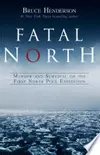
Added to listHistorywith 42 books.




